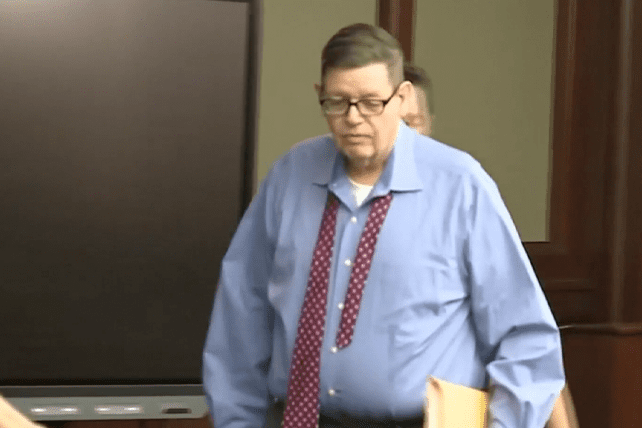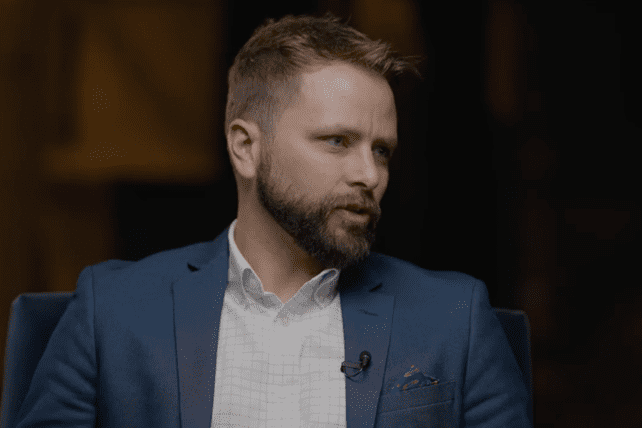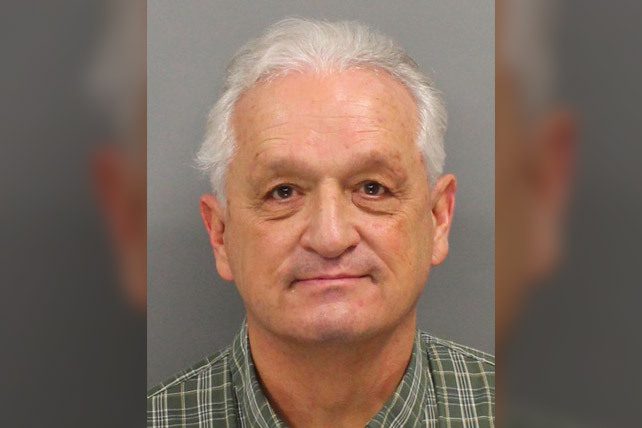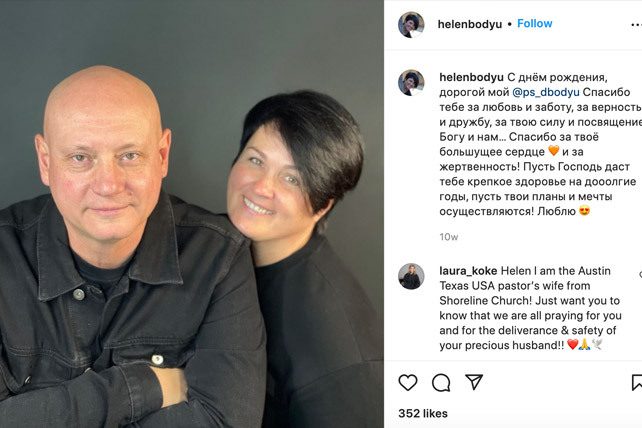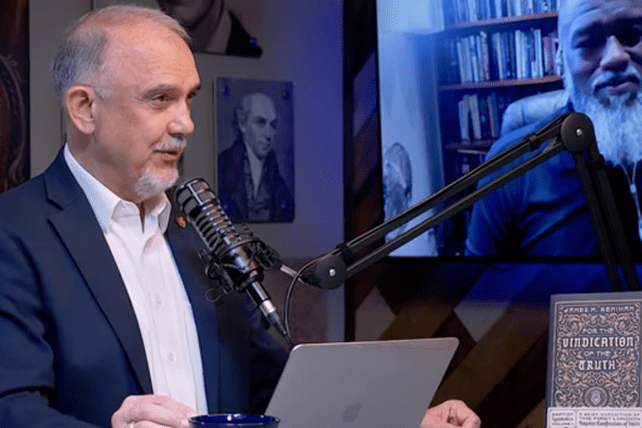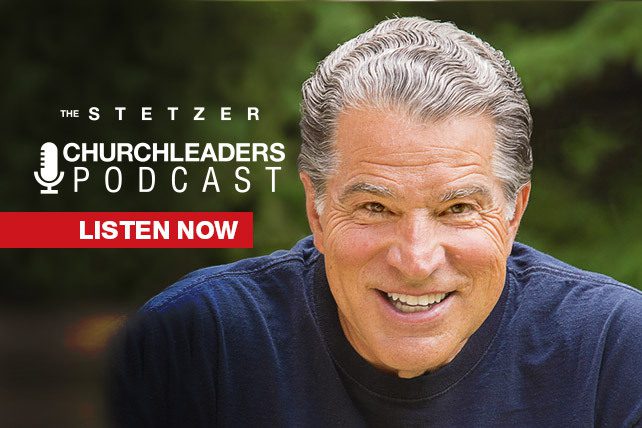If you are like me, you are sometimes confused by obscure, out-of-context verses that are used to encourage our singing in a worship service. One very often-quoted verse utilized by worship leaders comes from the King James translation of Psalm 22:3: “But thou art holy, O thou that inhabitest the praises of Israel.” By “claiming” this verse, these leaders are likely sincere in a desire to experience the Holy Spirit in the context of the corporate gathering. Yet, people praising Jesus have an obsession with this vague verse, as they are interpreting it, even though is not actually supported by New Testament teaching and, sadly, breeds significant confusion and false expectations. More importantly, it ultimately undermines the truths that are very clear in the New Testament about the person and work of the Spirit in the context of our corporate worship.
People Praising Jesus – Does God Really “Inhabit the Praises of His People?”
1. People Praising Jesus: a Needed Clarification
Commenting on the frequent use of this verse, worship pastor Zach Hicks confesses, “In an effort to elevate singing to nearly ‘sacramental’ status, (many have observed that evangelicals . . . have made congregational singing the ‘third sacrament’ of Protestantism because of how much weight we give to experiencing God’s presence in the midst of singing), this verse would be a slam dunk argument in less than ten words.”[i]
After a very careful examination of the original Hebrew translation, Hicks confesses, “Ultimately, it comes down to integrity. Will I approach the Scriptures as honestly as possible, and will I model that honesty thoroughly before the people I lead, even when it eliminates what I considered a major tool in my ‘worship theology shorthand’ arsenal? Sometimes (and I am guilty of this, too), we allow a little mis-exegesis to slide because ‘it’s just too good.’”[ii] (You can read Hick’s blog and certainly do your own study.)
2. Language and Context
Most scholars agree, and I am convinced, that the correct translation reads: “Yet you are enthroned as the Holy One; you are the one Israel praises” (NIV). “But you are enthroned as the Holy One, the one whom Israel praises” (GNB). Young’s Literal Translation reads, “And Thou art holy, Sitting—the Praise of Israel.” Hebrew scholar, John Goldingay states, “The idea of Yhwh’s being enthroned on or inhabiting Israel’s praise is unparalleled, and if either of these is the Psalm’s point, one might have expected it to be expressed more clearly.”[iii] His conclusion is that the idea of God “inhabiting” our praises is not a normal translation and not emphasized elsewhere in the Old Testament.
Worship pastor and blogger, Jonathan Aigner notes,
There’s another huge context clue we’ve got to look at. Read the whole of Psalm 22, especially the first half. It’s written out of the unpleasant and uncomfortable reality that God seems to be absent. It’s a powerful lamentation, crying out for an invisible God. It’s similar in tone to Jesus’ anguished cry on the cross (Psalm 22 is the lectionary Psalm reading for Good Friday). While this Psalm is certainly valuable for those of us who have felt God’s absence, the glib way we use verse 3, either as manipulation or justification, simply does not fit here. It is not a description of God reveling in human celebration.[iv]
Aigner continues,
The bottom line is this: the verse doesn’t give us carte blanche to sing (or preach, or pray) whatever we feel. Worship is not simply about singing and feeling nice things to God so that God will be able to take his rightful place. We cannot possibly add anything else to God’s glory by what we do in worship. God is Most High no matter what we think or feel. In worship, God is the subject, the great Mover and Shaper, and we are the ones being moved and shaped by God’s story. I know it sounds and feels sooo good to say that God inhabits our praises, but I don’t think we can get there from this text. I certainly don’t say it anymore, and if you share any part of my doubt, I’d encourage you to do the same.” [v]
I would simply reiterate that there is no New Testament verse teaching that music is a means of making God more than He already is — or in any way mediating the presence of the Holy Spirit. In some gatherings it seems that the worship leaders are trying to improve God’s status or even “channel” the Holy Spirit through the music, which is far more akin to mysticism than to biblical Christianity.
3. Bible Interpretation 101
Beyond the exact language and context of a particular verse, there are other essential principles for properly understanding the Bible. We must compare Scripture with other Scripture. We must interpret what is infrequent and unclear by what is paramount and very clear in the Bible. Further, we must understand all of Scripture through the filter of the gospel of Christ and the reality of the new covenant.
First, the Bible is abundantly clear that the finished work of Christ made it possible for God to now permanently inhabit the human soul through the saving grace of the cross. As redeemed souls we are now the temple of the Holy Spirit. There is no teaching in the New Testament that Jesus died in order to sanctify buildings, atmospheres, or the notes of our congregational singing. We cannot allow ourselves to diminish the power and teaching of the new covenant with pithy phrases or popular worship ideas about people praising Jesus.
One author, representative of this view, explains an aberrant idea: “It stands to reason that Presence is released. Atmosphere is changed… This is an amazing result from a dove being released… The atmosphere changes as the Presence is given His rightful place.”[vi] Note the third person reference to the Holy Spirit. “Presence” is capitalized (seemingly as a “force” rather than as the indwelling PERSON of the Holy Spirit) and it appears that the goal is to give this “Presence” preeminence through the singing. Again, this contradicts all the New Testament teachings regarding the person and purpose of the Holy Spirit.
4. People Praising Jesus – The Power of Music in the New Testament
As Christians we must understand that music is an expression, or overflow, of the indwelling Holy Spirit controlling us (Ephesians 5:18-19). It is also the “word of Christ” at work in our hearts that gives us cause to sing (Colossians 3:16). Writer Bob Kaufflin makes an insightful observation at this point: “For those of us who think of worship primarily in terms of musically driven emotional experiences, Jesus’ conversation with the Samaritan woman would be eye-opening. Jesus is talking about ‘true worshipers’ and he doesn’t reference music once. Not a whisper of bands, organs, keyboards, choirs, drum sets, guitars, or even lutes, lyres, and timbrels. Period. Music is part of worshiping God, but it was never meant to be the heart of it.”[vii]
Speaking about music, Vaughan Roberts clarifies, “It is not the means by which we enter the presence of God, but it is one of the ways in which we can express our joy at the wonderful truth that we are already there, in his presence, in Christ.” [viii] The lyrics of clear biblical truth in music can certainly deepen our worship and positively affect our emotions. Yet, the Bible is clear that it is the work of Christ alone that has mediated the presence of the Holy Spirit in our lives – not songs, smoke machines, lighting effects, or the energy of a gathered crowd. Any diversion from the truth of what really mediates God’s presence (other than Christ) dilutes the glory of the gospel and diminishes the power and truth of all His cross has accomplished for us.
5. Clarity About the Spirit and our Worship When There Are People Praising Jesus.
We do not sing in order to be filled with the Holy Spirit. We are filled with the Holy Spirit so that we might sing. The New Testament nowhere teaches that the Holy Spirit works through the medium of notes, sound systems, and tunes to deliver God’s presence or enabling the Holy Spirit to take control of our lives. Rather, the Holy Spirit’s control in us will produce heartfelt worship expressed in song for the glory of Christ. The truth in the songs can certainly inform and inspire our worship but the song is not the key to the “Presence.”
Michael Horton notes, “Vagueness about the object of our praise inevitably leads to making our own praise the object. Praise therefore becomes an end in itself, and we are caught up in our own ‘worship experience’ rather than in the God whose character and acts are the only proper focus.”[ix]
6. People Praising Jesus – Our Response
The goal of all I have said is not to stimulate criticism toward your worship pastor. I hope you will pray for those who lead your worship and gently suggest biblical clarity when you have the opportunity. I simply want to help us all embrace paramount New Testament truth so that the Holy Spirit’s purpose of glorifying Christ and His finished work for us might be clear and compelling in our worship. Let’s set our hearts to worship “from the inside out” as the Holy Spirit and word of Christ compel us to make much of the cross – whether through hymns or new praise choruses – whether gathered in a simple chapel or a high-tech worship facility. The indwelling Spirit will produce people praising Jesus in our hearts as we are fully submitted to Him.
This article about people praising Jesus originally appeared here, and is used by permission.
(This article is adapted from Daniel Henderson’s book Transforming Presence: How the Holy Spirit Changes Everything from the Inside Out, presenting ten truths for a new experience of the Holy Spirit. You can learn more at www.transformingpresencebook.com.)




